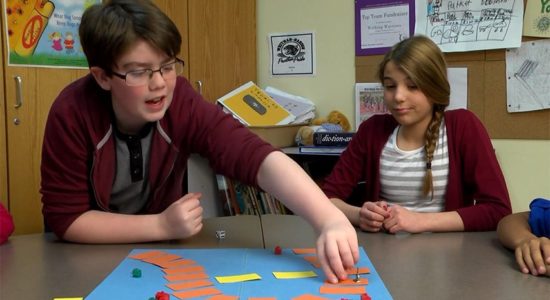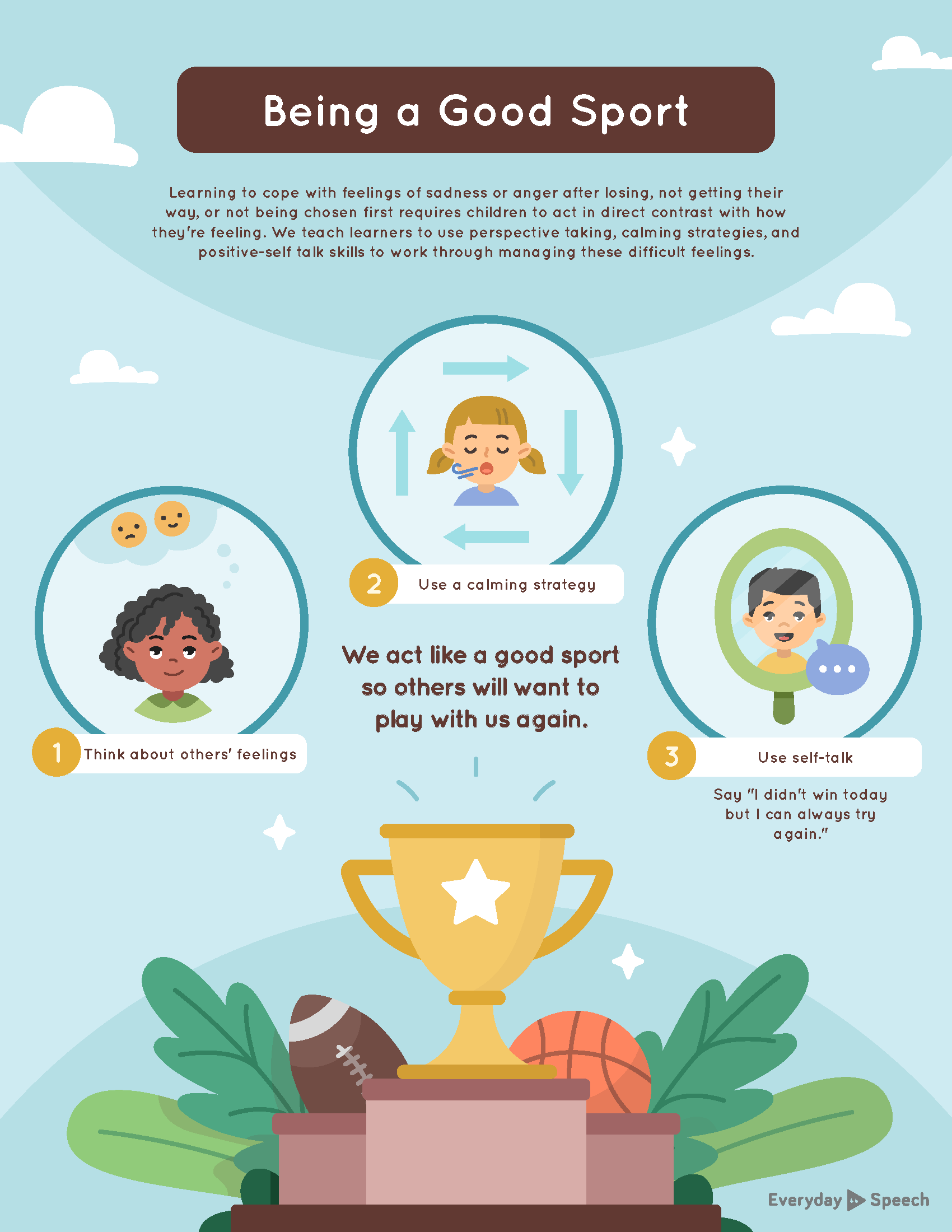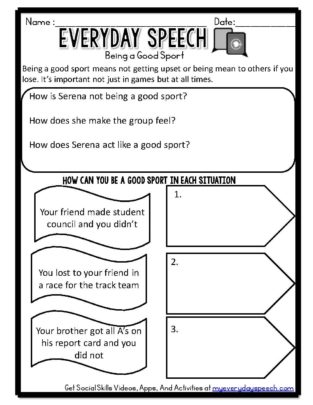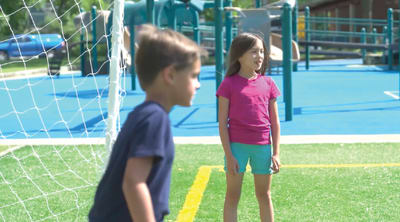Try the no-prep way to teach Being a Good Sport
Take the prepwork out of teaching essential social-emotional skills with Everyday Speech! Subscribe to access step-by-step curriculum and over 1,000 videos, games, and more.

Preview an SEL skills lesson: Being a Good Sport

Narrator: We can’t win all the time. Sometimes when we’re playing sports or game, other people win, and that’s okay. When we lose, we need to be a good sport. Being a good sport means not complaining or getting upset when we lose. If we get upset every time we lose, people won’t want to play with us. Let’s see what happens when Serena isn’t a good sport.
Devin: Okay, Andrew, it’s your turn.
[Andrew rolls dice.]
Andrew: Yes! Six! I’m so far ahead.
Serena: My turn.
[Serena rolls dice.]
Serena: [Groans] I rolled a two last time! I don’t want to play this stupid game anymore!
[Serena storms out of the room.]
Narrator: How did Serena make the other players feel? Let’s see what they’re thinking.
Andrew [thought bubble]: Why did she knock everything over? It’s just a game.
Devin [thought bubble]: We were just having fun. Next time, I’m not going to play with her.
Narrator: How do you think Serena feels? Let’s see what she’s thinking?
Serena [thought bubble]: I’m so frustrated. I got two bad rolls. I’m never going to win.
Narrator: Serena felt frustrated, and her actions made the rest of the group upset. They were all having fun playing and Serena ruined their game. Even if we aren’t winning, we have to be a good sport and stay calm. If we get angry every time we lose, people won’t want to play with us. Let’s see what happens when Serena is a good sport.
[Andrew rolls dice.]
Andrew: Yes! I rolled a six! I’m so far ahead.
Serena: Alright. It’s my turn.
[Serena rolls dice.]
Serena: [Groans] I rolled a two again.
Devin: Don’t worry, Serena. I’m sure you’ll do better next time.
Narrator: That time, Serena stayed calm and didn’t overreact when she was losing. Serena was a good sport. Now everyone else got to enjoy the game. We can’t win all the time, and that’s okay. Even if we don’t win, we have to be nice to the other players. There’s always next time.
Try Everyday Speech free for 30 days to see all our videos and their companion activities and games!





